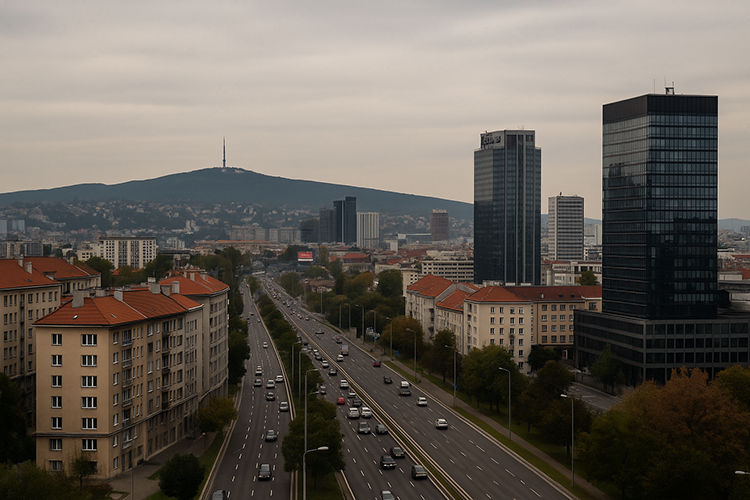Slovakia: Industry and Services Struggle, Households Improve
Slovakia’s overall economic confidence slipped in September, with factories and service firms turning more cautious, even as consumers, builders, and retailers expressed slightly greater optimism.
The composite measure of sentiment dropped compared with August and remained well below its long-term average, underscoring an uneven backdrop for growth. Year on year, the index is nearly five points lower.
The sharpest deterioration came from industry. Manufacturers reported lower expectations for output in the coming months and a build-up of unsold goods. Weakness was most visible in textiles, food production, and pharmaceuticals, while makers of refined fuels and transport equipment also forecast cutbacks. Some relief came from exporters in food and electrical equipment, who noted a small improvement in foreign orders, but this was not enough to offset the broader decline.
Service companies also scaled back their outlook. Real estate activities in particular weighed on the sector, while transport and storage firms said they expect to reduce staff in the coming quarter. Businesses in finance and insurance reported stronger demand, but this was not enough to keep the sector’s overall reading in positive territory.
By contrast, construction firms saw an improved flow of orders, especially in building works, and reported plans to take on staff. Labour shortages and higher costs remain obstacles, but more firms described their order books as sufficient. Retailers also voiced greater optimism, pointing to expectations of higher sales and employment, particularly in household goods and information technology equipment.
Household sentiment strengthened modestly after several months of declines. People were less worried about job prospects and financial pressures, and more confident about their ability to save. All four components of the household survey improved in September, although the overall mood remains far more negative than a year ago.
The downturn in Slovak business sentiment mirrors a broader cooling trend across Europe. The European Commission’s September survey showed the euro area’s overall sentiment index falling slightly, as manufacturing remained subdued and services confidence softened. Consumer mood in the EU improved somewhat, though it also stayed well below historical averages. Compared with neighbours, Slovakia’s index is weaker than that of Czechia, where confidence has been steadier, but broadly in line with Hungary and Poland, where industry has also been under strain. The divergence between still-cautious businesses and slowly recovering households appears to be a common pattern across Central Europe.
Taken together, the results highlight a split in the Slovak economy. Industry and services, which account for a large share of output, are showing signs of strain from weaker demand and rising inventories. On the other hand, households, retailers, and builders are cautiously more optimistic, hinting at pockets of resilience. The question for the months ahead is whether the gains in construction, trade, and household confidence can balance out the drag from factories and services. For now, Slovakia’s sentiment index suggests that growth momentum remains fragile heading into the final quarter of 2025.
Source: SOSR








